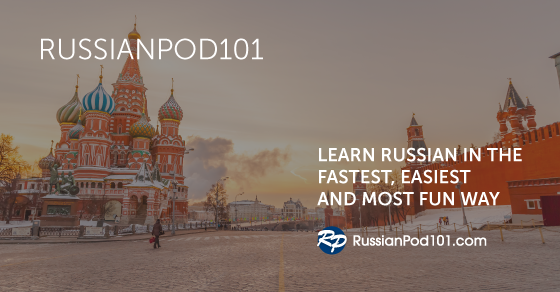| Спокойной ночи. (Spokoynoy nochi.) |
| Доброе утро. (Dobroye utro.) |
| What do these words mean? Stick around. |
| In this quick lesson, you’ll learn basic Russian greetings that all beginners must know. |
| Before we start, do you know why often Russians avoid shaking hands through a doorway when greeting or saying goodbye? |
| Keep watching for the answer at the end. |
| Здравствуйте. (Zdravstvuyte.) |
| “Hello.” |
| Здравствуйте. (Zdravstvuyte.) |
| Здравствуйте. (Zdravstvuyte.) |
| The word Здравствуйте (zdravstvuyte) is a polite greeting in Russian. It comes from the Old Slavic word здравие (zdraviye), which means “health” and translates to “be healthy” or “I wish you health.” |
| The word Здравствуйте (zdravstvuyte) is long, with many consonants in a row, some of which are not pronounced. In informal settings, this word is often shortened to здрасьте (zdras’te). It sounds quick and casual. |
| Jack greets Steve at a networking event. |
| Jack: Здравствуйте! Как поживаете? (Zdravstvuyte! Kak pozhivayete?) |
| Steve: Хорошо! А вы? (Khorosho! A vy?) |
| Спокойной ночи. (Spokoynoy nochi.) |
| “Goodnight.” |
| Спокойной ночи. (Spokoynoy nochi.) |
| Спокойной ночи. (Spokoynoy nochi.) |
| The literal translation of the phrase спокойной ночи into English would be “peaceful night.” |
| Once, at my birthday party, my friend left earlier than the others. The fun was in full swing. I asked if she got home safely and wished her “good night” – Спокойной ночи (Spokoynoy nochi). She then wished us a not-so-peaceful night – неспокойной ночи (nespokoynoy nochi) in return. Which really means something like “have a crazy night.” |
| Steve calls Tom before going to bed. |
| Steve: Спокойной ночи. Было весело. (Spokoynoy nochi. Bylo veselo.) |
| Tom: Спокойной ночи. До завтра. (Spokoynoy nochi. Do zavtra.) |
| Доброе утро. (Dobroye utro.) |
| “Good morning.” |
| Доброе утро. (Dobroye utro.) |
| Доброе утро. (Dobroye utro.) |
| Hardworking people joke, ‘The morning might be good, but I’m not.’ Start with coffee, a tasty breakfast, and some exercise—then you can wish your colleagues ‘good morning’ or Доброе утро (Dobroye utro). |
| The word добрый (dobryy) also describes someone’s character, like добрый мужчина (dobryy muzhchina) – “a kind man.” |
| Victoria greets her friends before heading out on a hiking trip. |
| Victoria: Всем доброе утро. (Vsem dobroye utro.) |
| Tom: Доброе утро! Рад тебя видеть. (Dobroye utro! Rad tebya videt’.) |
| Приятно познакомиться. (Priyatno poznakomit’sya.) |
| “Nice to meet you.” |
| Приятно познакомиться. (Priyatno poznakomit’sya.) |
| Приятно познакомиться. (Priyatno poznakomit’sya.) |
| There is another phrase similar to Приятно познакомиться (Priyatno poznakomit’sya). |
| Очень приятно (Ochen’ priyatno). |
| It has a broader meaning – “It’s a pleasure.” |
| Очень приятно (Ochen’ priyatno) can also be used to express gratitude or pleasure. |
| Karolina greets a new student. |
| Karolina: Приятно познакомиться. Пожалуйста, проходите. (Priyatno poznakomit’sya. Pozhaluysta, prokhodite.) |
| Gabriel: И мне приятно познакомиться. Спасибо. (I mne priyatno poznakomit’sya. Spasibo.) |
| Как дела? (Kak dela?) |
| “How are you?” |
| Как дела? (Kak dela?) |
| Как дела? (Kak dela?) |
| The phrase как дела? (Kak dela?) is an expression used to ask about someone’s affairs, well-being, or mood. The word дела (dela), “affairs or matters,” in this context originally could refer to how things were going in a broader sense – how events or tasks in a person’s life were unfolding. |
| Steve greets Tom at a party. |
| Steve: Рад тебя видеть! Как дела? (Rad tebya videt’! Kak dela?) |
| Tom: Хорошо! А у тебя? (Khorosho! A u tebya?) |
| До свидания. (Do svidaniya.) |
| “Goodbye.” |
| До свидания. (Do svidaniya.) |
| До свидания. (Do svidaniya.) |
| Свидание (Svidaniye) originally meant “a meeting” or “encounter” and до свидания (Do svidaniya) literally translates to “until (the next) meeting.” |
| Now, in Russia, the word Свидание (Svidaniye) means “a date.” |
| Jack says goodbye after meeting with Steve. |
| Jack: До свидания. Скоро увидимся! (Do svidaniya. Skoro uvidimsya!) |
| Steve: Обязательно. Береги себя! (Obyazatel’no. Beregi sebya!) |
| Let’s review. |
| You’ll see the words in English and your job is to say the words in Russian. |
| Ready? |
| Do you remember how to say “Hello.”? |
| Здравствуйте. (Zdravstvuyte.) |
| Здравствуйте. (Zdravstvuyte.) |
| And how to say “Goodnight.”? |
| Спокойной ночи. (Spokoynoy nochi.) |
| Спокойной ночи. (Spokoynoy nochi.) |
| How about “Good morning.”? |
| Доброе утро. (Dobroye utro.) |
| Доброе утро. (Dobroye utro.) |
| Do you remember how to say “Nice to meet you.”? |
| Приятно познакомиться. (Priyatno poznakomit’sya.) |
| Приятно познакомиться. (Priyatno poznakomit’sya.) |
| And how to say “How are you?” |
| Как дела? (Kak dela?) |
| Как дела? (Kak dela?) |
| And finally, do you remember how to say “Goodbye.”? |
| До свидания. (Do svidaniya.) |
| До свидания. (Do svidaniya.) |
| Do you know why often Russians avoid shaking hands through a doorway when greeting or saying goodbye? |
| Russians believe it’s bad luck to shake hands or pass anything through a doorway. They think this might bring bad luck, so they step fully into a room or out of it before shaking hands! |
| Thanks for watching! Don’t forget to practice these new words and phrases, and see you next time! |


دیدگاهتان را بنویسید